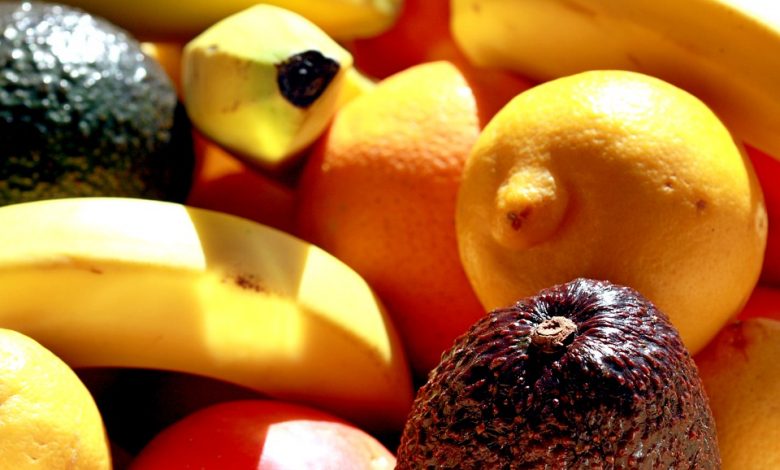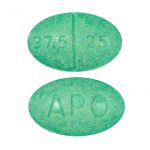What Fruit To Avoid When Taking Triamterene?

Food and fruits in particular can affect the way your body processes medication. Such interactions can make a drug more powerful—so that a standard dose becomes an overdose—or can render it less potent or altogether ineffective.
Several foods can also block or stimulate the enzymes that break down drugs. People who wash down atorvastatin (Lipitor) or simvastatin (Zocor) with large amounts of grapefruit juice may experience muscle pain and other side effects from statin “overdose,” because the juice inhibits the enzyme that clears the statins. Fish oil supplements can have a similar effect when taken with warfarin, increasing the risk of severe bleeding. Iron supplements can diminish the effects of levoxythyroxine (Synthroid), the medication used to treat an underactive thyroid amongst others.
What is Triamterene?
Triamterene more commonly known by the brand name Dyrenium is a diuretic (“water pill”) that works in your kidneys to increase the amount of urine you make. This helps your body get rid of extra water. This medication is used to decrease swelling (edema) caused by conditions such as cancer, congestive heart failure, liver disease, and kidney disease. This effect can help your kidneys work better and lessen symptoms such as trouble breathing and swelling in your ankles, feet, hands, or belly.
This drug also comes in a combination product that contains 2 medications: triamterene and hydrochlorothiazide. Both these medications belong to the class of medications called diuretics (“water pills”). They are used in combination to treat edema (fluid retention) that occurs with congestive heart failure and liver or kidney disorders. It is also used to treat mild-to-moderate high blood pressure.
This combination also works by making the body lose excess water and salt. Triamterene, called a potassium-sparing diuretic, helps the body to keep potassium in, while hydrochlorothiazide causes the body to lose potassium. Therefore, potassium supplements are usually not required with this medication.
This medication may be available under multiple brand names and/or in several different forms. Any specific brand name of this medication may not be available in all of the forms or approved for all of the conditions discussed here. As well, some forms of this medication may not be used for all of the conditions discussed here.
How to use Triamterene 100 Mg Capsule Diuretics
Take this medication by mouth as directed by your doctor, usually once or twice a day after a meal. If you take this drug too close to bedtime, you may need to wake up to urinate. It is best to take this medication at least 4 hours before your bedtime.
To reduce your risk of side effects, your doctor may direct you to start this medication at a low dose and gradually increase your dose. Follow your doctor’s instructions carefully.
The dosage is based on your medical condition and response to treatment.
Use this medication regularly to get the most benefit from it. To help you remember, take it at the same time(s) each day.
Do not increase your dose or use this drug more often or for longer than prescribed. Your condition will not improve any faster, and your risk of side effects will increase.
Do not stop taking this medication without consulting your doctor. Some conditions may become worse when this drug is suddenly stopped. Your dose may need to be gradually decreased.
Tell your doctor if you do not get better or if you get worse.
What Fruit To Avoid When Taking Triamterene?
People taking triamterene should avoid or limit their intake of high-potassium foods:
- Bananas
- Oranges
- Avocados
- Melons
- Tomatoes
- White and sweet potatoes
- Green leafy vegetables
- Dried fruits, especially apricots
- Salt substitutes that contain potassium
These foods are rich in potassium and studies have shown that taking triamterene-containing products can increase the levels of potassium in your body and lead to irregular heartbeat and heart palpitations a condition known as Hyperkalemia.
Many people with mild hyperkalemia have no signs or ones that are easy to dismiss. Symptoms often come and go and may come on gradually over weeks or months. Dangerously high potassium levels affect the heart and cause a sudden onset of life-threatening problems. Hyperkalemia symptoms include:
- Abdominal (belly) pain and diarrhea.
- Chest pain.
- Heart palpitations or arrhythmia (irregular, fast or fluttering heartbeat).
- Muscle weakness or numbness in limbs.
- Nausea and vomiting.
What other side effects can this medication cause?
Triamterene may cause side effects. Tell your doctor if any of these symptoms are severe or do not go away:
• dizziness
• headache
• vomiting
Some side effects can be serious. If you experience any of the following symptoms, call your doctor immediately:
• diarrhea
• difficulty breathing or swallowing
• extreme tiredness
• flu-like symptoms
• lack of energy
• loss of appetite
• muscle weakness or cramps
• pain in the upper right part of the stomach
• rash
• severe dry mouth
• slow or irregular heartbeat
• sore throat
• unusual bleeding or bruising
• unusual bruising or bleeding
• upset stomach
• yellowing of the skin or eyes
If you experience a serious side effect, you or your doctor may send a report to the Food and Drug Administration’s (FDA) MedWatch Adverse Event Reporting program online (http://www.fda.gov/Safety/MedWatch) or by phone (1-800-332-1088).





